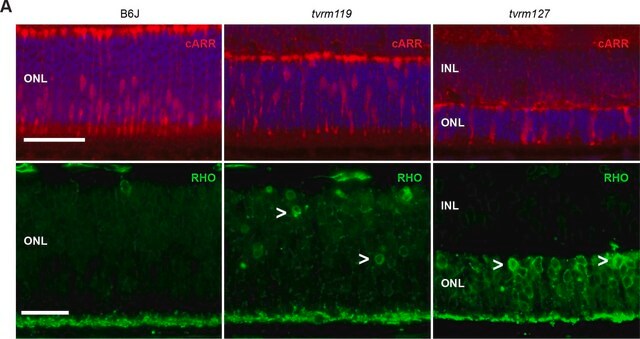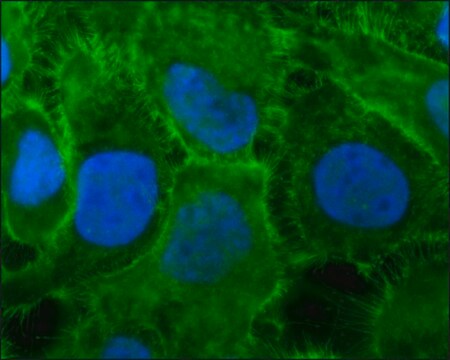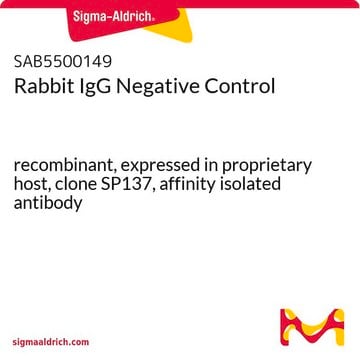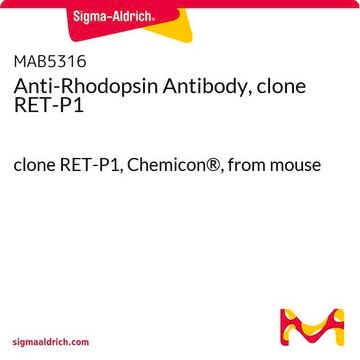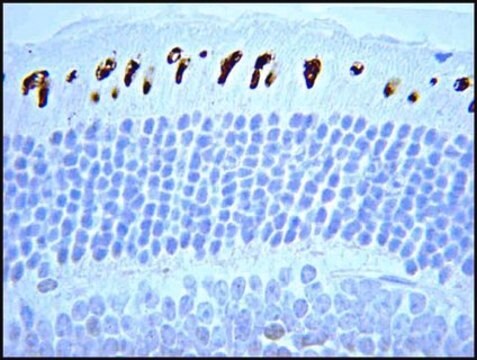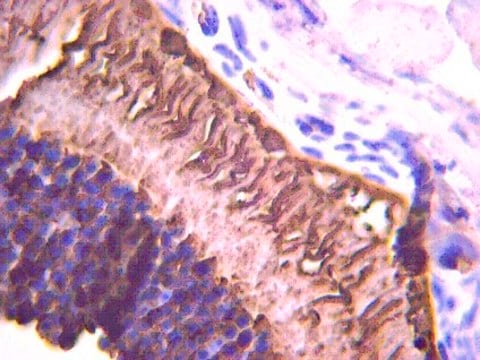O4886
Monoclonal Anti-Opsin antibody produced in mouse
clone RET-P1, ascites fluid
Sinónimos:
Anti-Opsin Antibody, Mouse Anti-Opsin, Opsin Detection Antibody
About This Item
Productos recomendados
biological source
mouse
Quality Level
conjugate
unconjugated
antibody form
ascites fluid
antibody product type
primary antibodies
clone
RET-P1, monoclonal
mol wt
antigen 39 kDa by immunoblotting (IB of rat retina produces closely spaced doublet)
contains
15 mM sodium azide
species reactivity
goldfish, mouse, tiger salamander, rat, amphibian, quail, dove, duck, rabbit, bovine, human, turtle
technique(s)
electron microscopy: suitable
immunocytochemistry: suitable using cultured cells
immunohistochemistry (frozen sections): 1:10,000 using frozen sections of rat eye
indirect ELISA: suitable
radioimmunoassay: suitable
western blot: suitable
isotype
IgG1
UniProt accession no.
shipped in
dry ice
storage temp.
−20°C
target post-translational modification
unmodified
Gene Information
human ... RHO(6010)
mouse ... Rho(212541)
rat ... Rho(24717)
General description
Immunogen
Application
Biochem/physiol Actions
Disclaimer
¿No encuentra el producto adecuado?
Pruebe nuestro Herramienta de selección de productos.
Storage Class
10 - Combustible liquids
wgk_germany
WGK 1
flash_point_f
Not applicable
flash_point_c
Not applicable
ppe
Eyeshields, Gloves, multi-purpose combination respirator cartridge (US)
Certificados de análisis (COA)
Busque Certificados de análisis (COA) introduciendo el número de lote del producto. Los números de lote se encuentran en la etiqueta del producto después de las palabras «Lot» o «Batch»
¿Ya tiene este producto?
Encuentre la documentación para los productos que ha comprado recientemente en la Biblioteca de documentos.
Los clientes también vieron
Nuestro equipo de científicos tiene experiencia en todas las áreas de investigación: Ciencias de la vida, Ciencia de los materiales, Síntesis química, Cromatografía, Analítica y muchas otras.
Póngase en contacto con el Servicio técnico